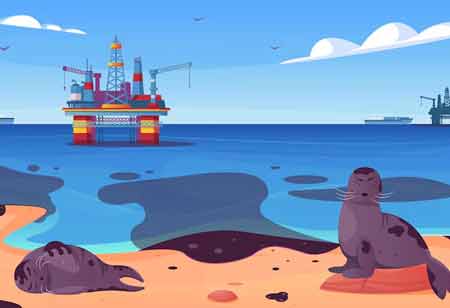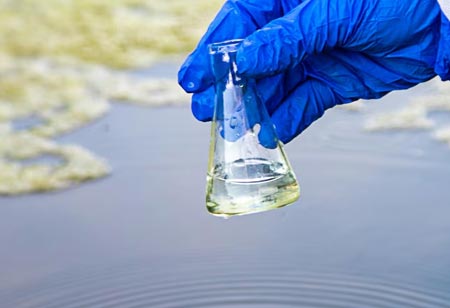Thank you for Subscribing to Environmental Business Review Weekly Brief
Oil Spills Endanger Biodiversity and Disrupt Ecosystems
Oil spills resulting from damaged tankers, pipelines, or offshore platforms often cause severe and long-lasting environmental harm, with impacts that can persist for years. This article explores the various consequences of oil spills, with a particular focus on their effects on plant and animal life

By
Environmental Business Review | Tuesday, September 09, 2025
Stay ahead of the industry with exclusive feature stories on the top companies, expert insights and the latest news delivered straight to your inbox. Subscribe today.
Fremont, CA: Oil spills from damaged tankers, pipelines, or offshore oil rigs often lead to immediate and long-term environmental harm, with effects that can persist for many years.
The following are some of the most significant aspects of environmental degradation associated with such spills:
Beaches, Marshlands, and Fragile Aquatic Ecosystems:
Oil spills envelop all surfaces they encounter, becoming persistent and detrimental components of the ecosystems they infiltrate. When an oil slick from a significant spill reaches a shoreline, it adheres to every rock and grain of sand. If the oil seeps into coastal marshes, mangrove forests, or other wetland areas, the fibrous vegetation absorbs the oil, potentially harming the plants and rendering the habitat unsuitable for wildlife.
When oil ceases to remain on the surface of the water and starts to submerge into the marine environment, it can inflict comparable harm on delicate underwater ecosystems, resulting in the death or contamination of fish and smaller organisms that play crucial roles in the global food chain.
Birds:
Oil-coated birds are a global emblem of the environmental harm caused by oil spills. While certain shorebird species may evade danger by relocating if they detect threats promptly, seabirds that rely on swimming and diving for survival are more susceptible to becoming coated in oil after a spill. Additionally, oil spills can devastate nesting habitats, leading to potentially severe long-term consequences for entire species.
Oil spills have the potential to interfere with migratory routes by polluting the locations where migratory birds typically rest. Even minimal exposure to oil can be fatal for birds. The oil coats their feathers, rendering flight unfeasible and compromising their natural waterproofing and insulation. This exposure increases their susceptibility to hypothermia or overheating. In their desperate attempts to clean their feathers and regain their natural protective qualities, birds frequently ingest oil, which can cause significant harm to their internal organs and ultimately result in death.
Marine Mammals:
Oil spills often result in the death of marine mammals, including whales, dolphins, seals, and sea otters. Oil can obstruct whales' and dolphins' blowholes, hindering their ability to breathe effectively and interfering with their communication. Additionally, the fur of otters and seals becomes coated in oil, increasing their risk of hypothermia.
Even if marine mammals manage to avoid the direct consequences of an oil spill, their food sources may still be compromised. Those who consume fish or prey affected by the spill may suffer from oil poisoning, leading to mortality or health issues.





